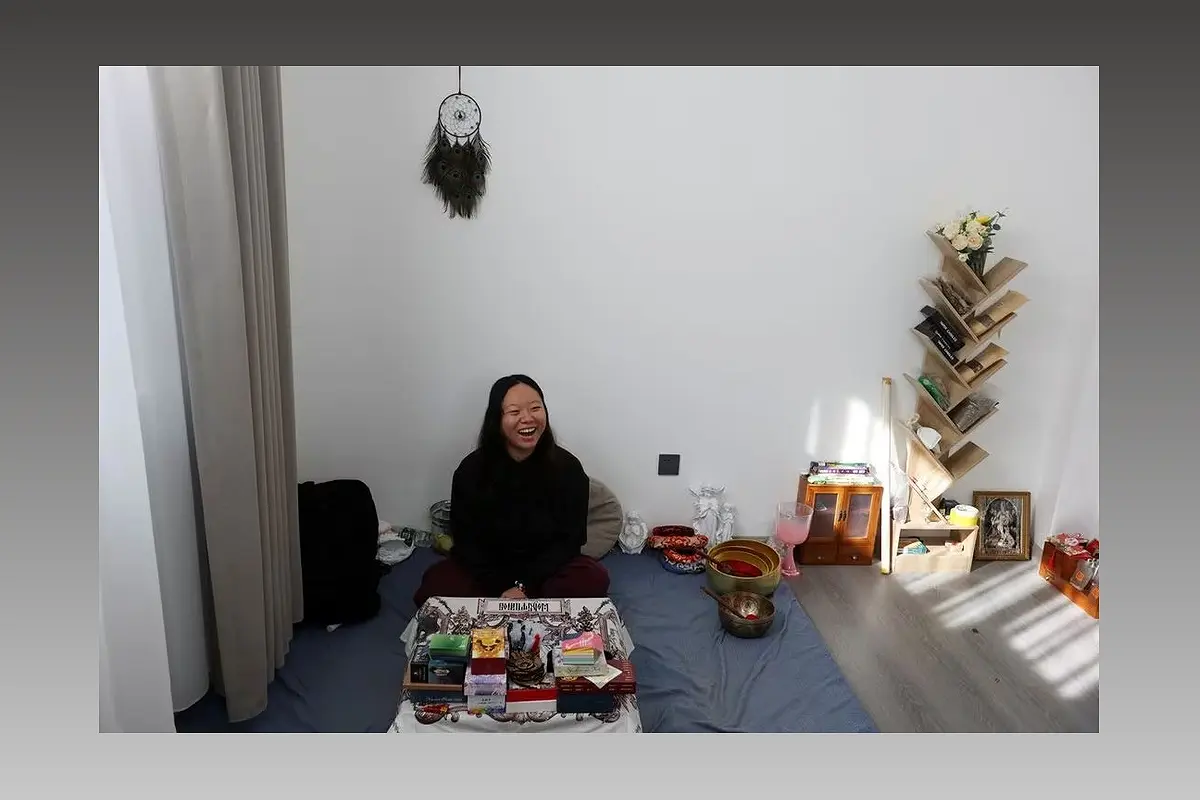In this mountain town in China's southwest, drifters and tarot card readers mingle with tech entrepreneurs and artists. Many of them are former city-dwellers seeking a space for open discussion and exchange of ideas in authoritarian China. Join me as we delve into Dali, a refuge for those looking to escape the tightening grip of President Xi Jinping and find personal growth amidst breathtaking scenery and a history of relative tolerance.
The Allure of Dali: A Refuge for the Seekers
Discover why Dali has become a sanctuary for those seeking freedom and personal growth in China.
Dali, located in Yunnan province, has captured the hearts of many former city-dwellers who yearn for open discussions and exchange of ideas in authoritarian China. Its cheap rents, mild climate, breathtaking scenery, and relative tolerance have made it an attractive destination for those seeking refuge from the tightening grip of President Xi Jinping.
But what exactly makes Dali so alluring? It's not just the beautiful landscapes and affordable living. Dali offers a space where drifters, tarot card readers, tech entrepreneurs, and artists can mingle and engage in discussions on a wide range of topics. From Trump-era populism to the challenges faced by China's youth, these conversations foster personal growth and a sense of belonging.
Dali's Old Town: A Cultural Haven
Explore the charm and history of Dali's Old Town district, a hub for culture workers and digital nomads.
Dali's Old Town district, nestled within the larger city, has been attracting culture workers since the late 1990s. Its normalization of remote work and less restrictive policies during China's zero-COVID crackdown have further enhanced its appeal. As a result, Dali has seen a surge in interest, with more people searching for it on platforms like WeChat.
What sets Dali's Old Town apart is its rich history and vibrant cultural scene. Wander through its ancient streets and you'll find co-working spaces, cafes, and art galleries where like-minded individuals gather. It's a place where creativity flourishes, and ideas flow freely.
Challenges and Controversies: Navigating Dali's Contradictions
Delve into the challenges faced by those who seek refuge in Dali, amidst increased police scrutiny and conflicting ideologies.
While Dali offers a haven for personal growth, it is not without its challenges. The presence of migrants in Dali implicitly challenges President Xi's vision of ideological loyalty to the Communist Party. As a result, there has been increased police scrutiny, event cancellations, and even police raids.
Furthermore, the local government's attempts to attract young tech talent and digital nomads are met with skepticism by many young people in Dali. They are cautious of Beijing's influence on their personal lives and the potential surveillance of co-working spaces. Despite these challenges, Dali remains a refuge for those seeking freedom of expression and individual liberties.
Dali: Defying the Trend of Urban Migration
Discover why Dali stands out as an exception to the trend of youth migrating to large cities in search of better opportunities.
China's efforts to address youth unemployment and stagnant rural populations have focused on promoting "rural revitalization" and encouraging graduates to return to their hometowns. However, Dali defies this trend as it attracts urban youths who seek social mobility and escape conservative social values.
With its appeal as an "Ideal Kingdom," Dali offers an alternative to the hustle and bustle of big cities. It provides a space for personal and professional growth, where individuals like Bai Yunxi, a civil servant-turned-astrologer, and Chen Zhengyun, a recruitment startup founder, can pursue their passions without interference.
The Future of Dali: Balancing Freedom and Oversight
Explore the delicate balance between freedom of expression and state monitoring in Dali's evolving landscape.
While Dali remains a haven for freedom and personal growth, it is not immune to state monitoring and oversight. The cancellation of a digital nomad conference and the surveillance of co-working spaces by the police highlight the cautious approach of local authorities towards emerging technologies.
However, the spirit of Dali persists. Its concentration of like-minded individuals, social events, and tolerance for diverse lifestyles continue to foster an environment of open discussion and personal exploration. Despite the challenges, Dali remains a place where individuals can find the freedom to express themselves and thrive.

